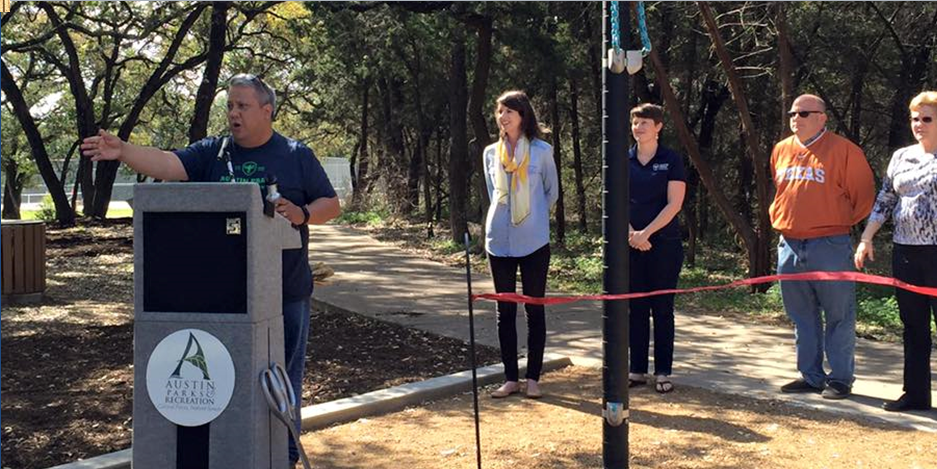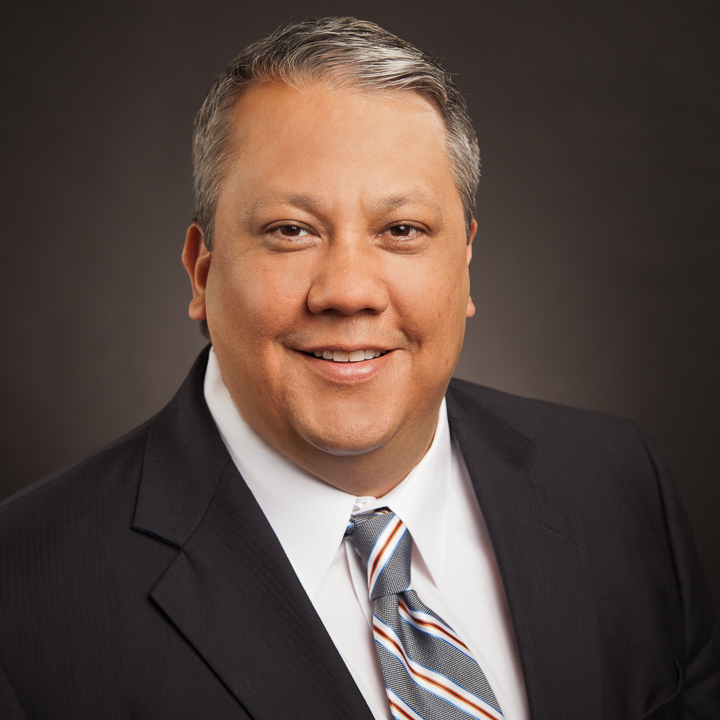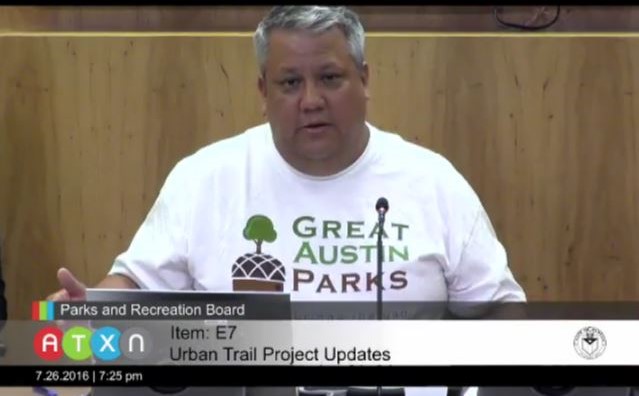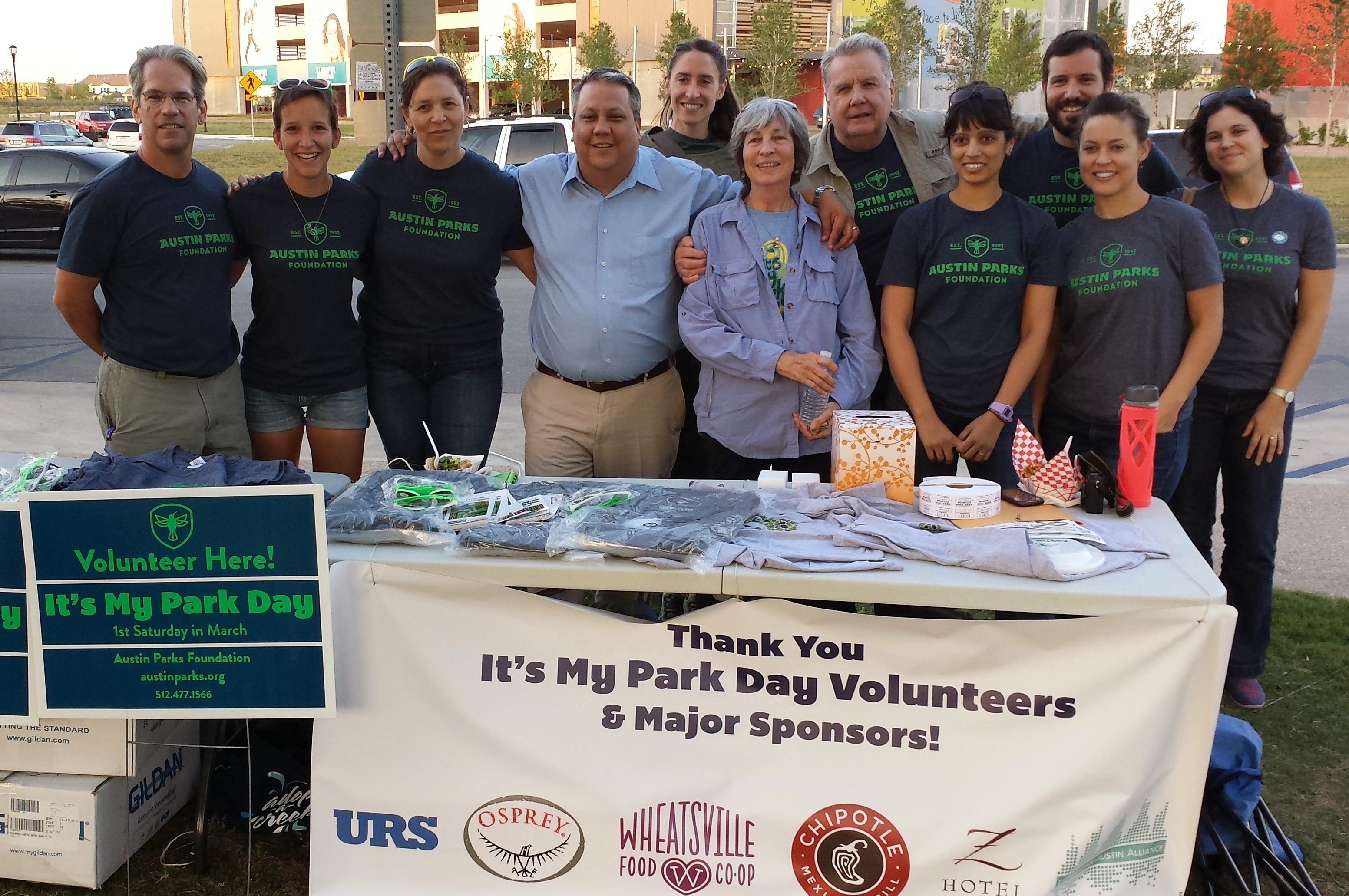
By: Elizabeth McGuire
 Rich DePalma has a newsflash for you: life is too short. Too short to chase a law degree when you know it’s not the field for you, too short to live in a town that doesn’t feed your soul, too short to stay in a job that doesn’t match your life goals. DePalma believes we can and should take charge of our own stories. And we have no time to lose.
Rich DePalma has a newsflash for you: life is too short. Too short to chase a law degree when you know it’s not the field for you, too short to live in a town that doesn’t feed your soul, too short to stay in a job that doesn’t match your life goals. DePalma believes we can and should take charge of our own stories. And we have no time to lose.
DePalma is a strategic consultant who has served Austin by focusing primarily on public education and parks issues. He is currently on the AISD Facilities and Bond Planning Advisory Committee and serves as the Vice Chair of the City of Austin Parks and Recreation Board, as a Board Member of TreeFolks, and as Board Vice President of Oak Hill Association of Neighborhoods.
After several years consulting with Strategic Partnerships, DePalma recently started his own firm, My Gov Partners, LLC., and continues to work with local government and state agencies. DePalma is an alumnus of the 2015 Essential Class and a passionate advocate for the program.
Born in Wichita Falls, Texas, but raised in the Bay Area and then the Phoenix suburbs, DePalma graduated from the University of Arizona with degrees in political science and business. He has focused on local government and pressure groups ever since. He says community service is in his blood.
DePalma’s father worked for the Department of Labor and both his grandfathers were in unions—one as a glassblower and one as a painter. Back in the 1940s the painter grandfather, who was Mexican-American, was told that if he wanted a job he needed to sound more American. “It’s a familiar story of immigrants,” said DePalma, “whether they are of German or Polish or Mexican descent…you must change to fit in. So the “De” was dropped and my father was born and died as Richard Palma.”
In college Rich decided he didn’t like someone else making that decision for his family, so before he graduated, he legally added back the “De” and has been Richard DePalma ever since.
It was only a two-letter change, he explained, but the decision reflected his deeply held beliefs. And to DePalma, life is too short to live otherwise.
 On the beginnings of his civic service:
On the beginnings of his civic service:
After I left law, I was asked to run a campaign for a friend who was running for board of trustees for a local college. I got the bug. That led to other opportunities and I’ve focused mainly on working with local government and state agencies, workforces commissions, and city/county organizations. At Strategic Partnerships, I started as a research consultant and left as a senior consultant. In my business, the goal is always to fix issues that the government is having, primarily by making the private sector smarter in how they design solutions to meet the public sector needs. We do a lot of connecting the dots.
On making time to volunteer in the community:
People often say, “If I could only do this or that.” And if someone comes along and says “Ok, go ahead. Be a part of the solution! Here’s your invitation to the table.” And then if you answer, “Wellll…actually never mind. I need to chase the money.” I don’t want that to be me. That wouldn’t be true to who I am and what I want to accomplish.
On his leadership style:
I can be a different type of leader depending on the group or the situation. I can be the coaching-type leader, the collaborative leader or the commanding leader (that one’s not fun for me, but I can do it.)
 On advice for emerging leaders:
On advice for emerging leaders:
Be authentic. Know who you are. Use every possible opportunity to engage with people.
On what makes a great leader:
Someone who leans on his or her network and mentors for friendship or advice. And someone with the skill set to engage the community with knowledge and compassion.
On the benefits of Leadership Austin’s Essential program:
Where do I begin? The network, the friendships, the more holistic way of thinking…it’s all been phenomenal. I’ve told everyone about it. When people say it’s a lot of money, I tell them it’s as valuable as a $20,000 executive program. So it is a bargain when you think of it in those terms. I’m grateful to the program. It builds instant rapport when I’m working with new people.
On the importance of diversity in community organizations:
How we build our boards absolutely impacts the communities that we work with and engage with. As a minority board member I think it’s important for us to be driving that diversity and adding more voices. It takes all of us to step up and say, “I need to do something about it.” We should have more than industry experts in the field…we should also look into the communities for everyday leaders. Of course there are some barriers and some financial reasons that people aren’t able to volunteer time or resources. When it comes to board diversity, if you can’t get the socio-economic mix right, we at least need to get the socio part right.
 On his motivation to serve the community:
On his motivation to serve the community:
Much of my drive comes from my father’s death and the fact that he passed away at age 55. Overall, the men in my family don’t live particularly long, so I think about what is the legacy that can live beyond us. That community stewardship is important to me. I think about acknowledging that it’s not all TAKE TAKE TAKE. I get that taxes are high, etc, but I’m also thinking about, “What have we done in this last generation that 40 years from now will be looked at as, THIS is what they contributed.”
